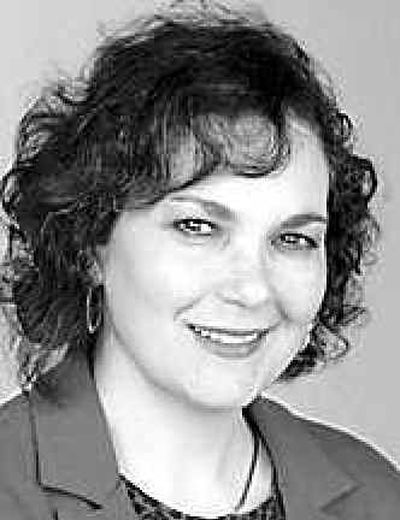Educator finds grace amid tragedy

John Traynor, president of Gonzaga Prep, was driving to Milford’s Fish House on Spokane’s North Side on April 9, 2003. He and his wife Barbara had eaten there many times, but suddenly he said, “I don’t know how to get there.”
A week later, doctors found a malignant tumor on Traynor’s brain. Prognosis: Not great. Yet Traynor, 63, recovered from surgery and returned to the school he loves. Sunday, Gonzaga Prep seniors will graduate. It will be Traynor’s last graduation. He retires June 30. Writer M. Scott Peck says that as adults age, they can respond to adversity with courage or with bitterness. If they retract into bitterness, the “thin veneer of adulthood” scrapes away, revealing the emotionally arrested adolescent inside. Adults who face adversity squarely and honestly graduate into true maturity.
I didn’t know Traynor before his brain tumor, but I’d heard about him. Heard about his popularity with students, parents and staff. Heard about his ability to raise tons of money. Heard about his passion for education. Before arriving at Prep 15 years ago, he taught at University High School for 18 years before becoming principal at Greenacres Junior High. When his cancer was diagnosed, the news spread quickly.
“I have never known anyone who has had more prayers said for him,” said Al Falkner, principal of Prep.
On the shelves in his office, Traynor has several photos taken before his brain tumor. He was a robust man. He’s 30 pounds thinner now. His right side is impaired, and he uses a cane. His speech is a bit garbled and his emotions dance on the surface. He tears up when he reflects on the past year, a year he calls “filled with grace.”
The grace began in the days after the diagnosis. His three grown children rushed home. He spent private time with each of them, talking. “Nothing was left unsaid,” Traynor said.
The grace continued through the surgery – 60 percent of the tumor was removed – and throughout his recovery. “I came home the week before Memorial Day and the flowers were just incredible. I could hardly stand it, it was so beautiful. The trees! Things smelled green.”
Three months into his recovery, Traynor received a visit from The Rev. John Whitney, the Jesuit provincial in charge of the region. Whitney told Traynor: “You didn’t work for us, you worked with us. And you enabled us to do what Jesuits are called to do in ministry. We’d love to have you come back.”
Traynor felt a great weight lift from his soul. The cancer diagnosis didn’t end his career ambitions. He had unfinished work to complete at Prep. In mid-August, he returned to his job. To the grace of work. “They made room for a person who was not exactly the same person as before,” he said. “I continued in the field of education, which I loved.”
More grace appeared as he saw familiar people in new ways. He was awed by his staff and by his “best friend” of 37 years, wife Barbara, a patient caregiver in the dicey first months following surgery. Two grandchildren were born this year, another is due soon, which will bring the grand total to five. Cherished, all.
Traynor, a native of Kitchener, Ontario, has three older siblings who live throughout Canada. “We were all close, but we took it for granted. We talk on the phone all the time now.”
When you speak with Traynor, you feel as if this busy man has nothing better to do. Traynor realized this year that none of us has any idea which conversations will ultimately be most important. So he relaxes into them all and takes the time they require. “He is so present to people,” says The Rev. Paul Fitterer, a Jesuit who spent the year at Prep as assistant to Traynor.
Five days each month, Traynor undergoes chemo. The tumor is shrinking. Traynor asks his doctor: “Can I just keep doing this until it disappears?” His doctor says, “Are you asking me can I heal you with this process? I never have.” And Traynor says, “I’m willing to be the first.”
Traynor and Fitterer often discuss the reality that life is not a problem to be solved, but a mystery to be lived. Traynor dwells in the mystery now, in the present moment, the only one he is guaranteed. He finds much joy there. He’s matriculated into the maturity that evades many adults, and it is something to behold and celebrate in this, the season of graduations.